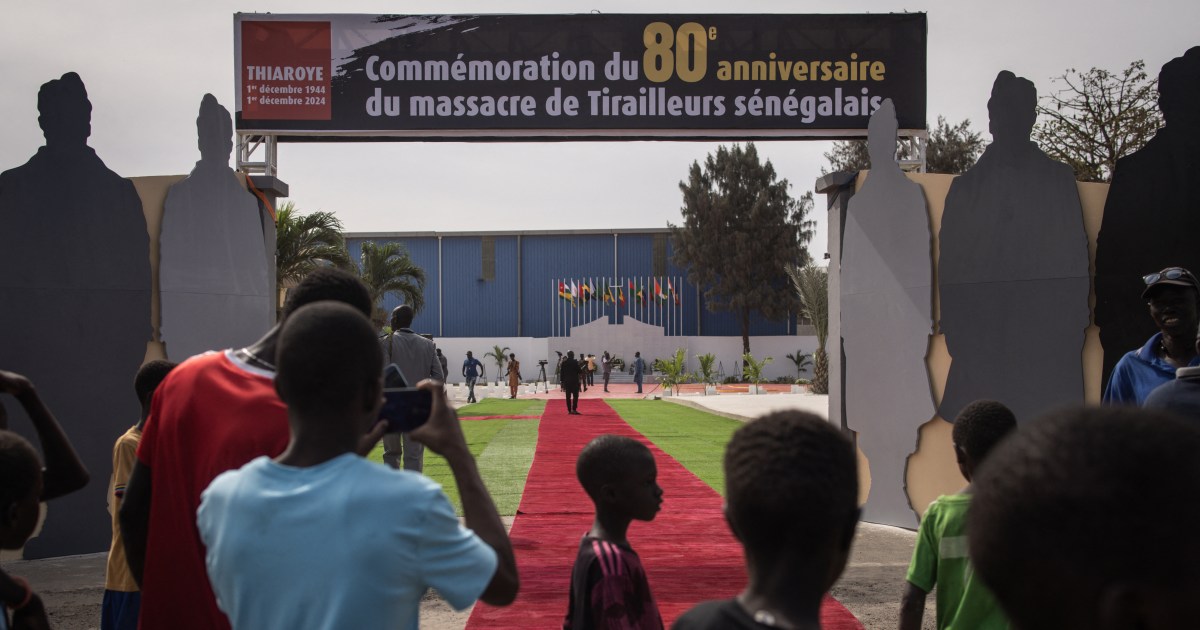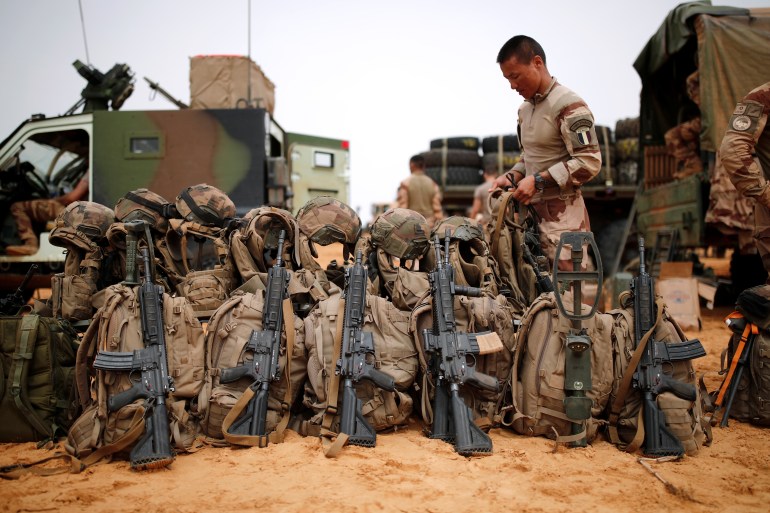Useful information
Prime News delivers timely, accurate news and insights on global events, politics, business, and technology
Useful information
Prime News delivers timely, accurate news and insights on global events, politics, business, and technology

In Senegal, a country full of French companies and citizens, President Bassirou Diomaye Faye’s recent announcement that France should close its military bases should have come as a surprise. However, analysts say, it was a measure that was always going to happen.
In November, Faye asked Paris to withdraw some 350 French soldiers stationed on Senegalese soil, effectively ending a defense pact that had existed for decades and continuing a trend that has seen many West African nations cut or downgrade the once strong ties with former colonizer France in recent years.
In an interview with the AFP news agency, the Senegalese president – who was elected earlier this year thanks to a nationalist campaign that promised to review Dakar’s relations with Paris – said that France’s continued military presence in the country was not compatible with the sovereignty of Senegal.
“Senegal is an independent country, it is a sovereign country and sovereignty does not accept the presence of military bases in a sovereign country,” Faye said, speaking from the presidential palace in Dakar. Faye did not give a deadline for when the soldiers would have to leave.
The move came as Senegal commemorated the 80th anniversary of the mass killings of West African soldiers by colonial forces on the morning of December 1, 1944. The men, West African soldiers from the Tirailleurs Senegalais unit who fought in France’s war against Nazi Germany, they had been protesting over delayed wages and poor living conditions when colonial soldiers shot at them.
Although the two nations have had cordial relations since Senegal’s independence, the killings have always been a wound that France kept silent until 2012. French authorities attempted to bury the evidence and claimed that 35 people died, although academics estimate that 400 died. people.
Then-President Francois Hollande admitted France’s guilt in 2012. However, this year President Emmanuel Macron, in a letter to President Faye, admitted that France committed a “massacre.”
Beverly Ochieng, a researcher at Dakar-based intelligence firm Control Risks, told Al Jazeera that the Senegalese government cutting military ties on the anniversary of the massacre was in line with election promises that Faye, along with with Prime Minister Ousmane Sonko – an outspoken critic of France – he told Al Jazeera. had done.
“Senegal is going through a lot of reforms under the two leaders, and they are really questioning how much interest they have in their own country,” Ochieng said.
“Faye doesn’t just want France to take up space on military bases when Senegal can’t go and do the same.”

Rising anti-French sentiments in former French colonies have seen France suffer diplomatic blows across the West and Central Africa region as its once influential “Francafrique” sphere rapidly shrinks.
Many governments and citizens, especially in the military-led Sahel countries, detest France’s real and perceived political interference in their countries. They see France as paternalistic for its deep involvement in sectors such as mining and its inability to decisively stop the expansion of armed groups, despite the thousands of French soldiers stationed in the region.
Ruling military groups in Mali, Burkina Faso and Niger collectively expelled some 4,300 French soldiers from their countries in 2022, after France refused to back the coups that brought them to power, and thousands of citizens demonstrated in their support. Those countries have since turned to Russian mercenaries for help fighting a swarm of armed groups seeking to gain territory in the volatile region.
On November 29, the same day Faye asked French troops to leave Senegal, the Central African country of Chad also severed its military ties with France, ending a defense pact that had existed since 1960 and surprising Paris. This week, the withdrawal began with two fighter jets leaving N’Djamena.
Chad, located in a surveillance “sweet spot” near war-torn Sahel, Sudan and Libya, was seen as the last remaining ally in the Sahel for Western governments. It was also the only rebellion that France supported after President Mahamat Deby took power by force in 2021.
However, experts say multiple triggers caused N’Djamena to back down this time, including reports that France withheld intelligence that led to the armed group Boko Haram killing 40 Chadian soldiers in October.

What sets Senegal apart from the rest of the group is that it is the only country that breaks ties with France and where there is no military government in power. Senegal is also one of the African countries where France has become more integrated, making an eventual divorce more complicated, experts say.
In sunny, coastal Dakar, where a culture of “Teraanga” (or hospitality) attracts and welcomes international expatriates, the French presence is unmistakable and French nationals mix freely with locals at restaurants, markets and events. TOTAL gas stations, telecommunications company Orange kiosks and Auchan supermarkets dot the city and account for around 25 percent of Senegal’s gross domestic product, according to France’s Foreign Ministry.
However, analysts say the spread of anger against France from neighboring Sahel countries and the rise of young, new-age politicians like Sonko, who in the past has made inflammatory statements against France and Senegalese leaders considered close to Paris, have caused the people in Senegal to become hostile.
In 2023, protesters attacked French businesses, looting and burning shops after Sonko, who was an opposition leader at the time, was detained on rape charges by former president Macky Sall’s government. Sonko, who said the charges were politically motivated, was acquitted of rape but jailed for “corrupting the youth,” stripping him of his eligibility to run for president, prompting his colleague, Faye, to take his place.
During their campaign in February, the duo promised more transparency and said they would review extractive contracts with Western-owned companies, including French and other European companies.
They also promised that Senegal would not work with Western lenders and would stop using the CFA franc, a currency used primarily by 14 former French colonies in sub-Saharan Africa and seen as the most obvious symbol of French neocolonialism. But it seems better said than done, analysts say.
“They have quietly let the CFA issue die down and there are no renegotiations of the extractive contracts with foreign companies that they had promised,” Oumar Ba, a professor of international politics at Cornell University, told Al Jazeera.
They have also continued to work with lenders such as the World Bank and the International Monetary Fund as the economy slowed this year, Ba said.
“I think that evoking the low-hanging fruit of the French military presence only contributes to keeping the symbolic sovereigntist discourse alive,” he said.
Some analysts say Faye is more likely to push for the realization of “Eco,” a proposed common West African currency that is under development.

France’s deteriorating relations with its former African allies, including Senegal, have seen it rethink its alliances in the region by downgrading its already collapsed military architecture to focus on other sectors such as business.
Paris earlier this year pledged to reduce its troop numbers from 350 to 100 in Senegal and Gabon, and from 600 to 100 in Ivory Coast. Before Chad expelled French troops in November, Paris had planned to reduce their numbers from 1,000 to 300.
Instead, France is pivoting toward economic relations and engaging more African countries outside its traditional sphere of influence. In November, President Macron hosted Nigerian President Bola Ahmed Tinubu at the Elysee Palace and even spoke colloquial Nigerian Pidgin English in his welcome speech.
“They need new friends and powerful friends,” Ochieng said. “If they can have a giant like Nigeria, they will still be able to resist,” he added. Major West African economies such as Ivory Coast, Gabon and Benin remain friends of Paris.
For Senegal, President Faye has hinted that the once ultra-close relations the country had with France will also be maintained more on the business front, clarifying that severing military ties does not mean ending trade.
“France remains an important partner for Senegal,” he told reporters. “Today, China is our largest trading partner in terms of investment and trade. Does China have a military presence in Senegal? No. Does that mean our relationships are severed? No,” he said.
However, the president also wants reparations for the Thiaroye murders. In addition to France closing its military bases, Faye said she would demand a formal apology from France. Such an apology would require France to make reparations, which could translate into monetary compensation for the victims’ families.
Prime Minister Sonko has long pushed for reparations for the killings. In June, as France celebrated its liberation from Nazi Germany, he criticized Paris’ decision to officially recognize six of the slain West African soldiers with the honor of “Died for France,” a title given to people who died in service. of the country. It is not clear why the six had been selected.
“It is not for (France) to unilaterally decide the number of Africans who were betrayed and murdered after helping to save them, nor the type and extent of recognition and reparations they deserve,” Sonko posted on Facebook, signing the message as head of the ruling party PASTEF, rather than as head of government.